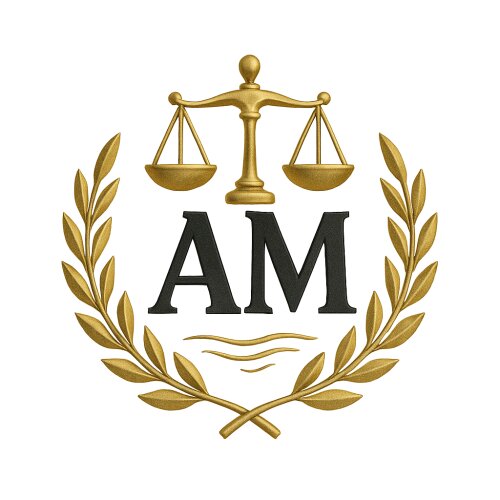Best Public-Private Partnerships (PPP) Lawyers in Mława
Share your needs with us, get contacted by law firms.
Free. Takes 2 min.
List of the best lawyers in Mława, Poland
About Public-Private Partnerships (PPP) Law in Mława, Poland
Public-Private Partnership, commonly called PPP, is a structured cooperation between a public authority and a private-sector partner to deliver public infrastructure or services. In Mława, as in other Polish municipalities, PPP projects combine private finance, design, construction, operation or maintenance with a public interest objective such as roads, waste management, social housing, energy, cultural facilities or public buildings.
PPP projects in Mława are governed primarily by national Polish law and by applicable European Union principles. Local government bodies - in particular Gmina Mława and the Mława county authorities - manage project selection, approvals and local permitting. Because PPPs touch many legal areas - procurement, concessions, public finance, land-use planning, environment and building law - local projects involve coordination of national rules with municipal decision-making and practical local conditions.
Why You May Need a Lawyer
PPPs are legally complex. Hiring a lawyer experienced in PPP and public procurement protects your interests and can reduce execution risk. Common situations in which you should seek legal help include:
- Project identification and feasibility analysis - determining whether a PPP is legally and commercially suitable for a specific local need.
- Procurement and tendering - preparing, running or responding to tenders while complying with public procurement rules and concession procedures.
- Contract drafting and negotiation - drafting concession agreements, service contracts, financing-side documents and risk-sharing clauses.
- Land, planning and permitting - securing land rights, navigating local spatial development plans, obtaining building and environmental permits.
- Financing and security - structuring debt, equity and guarantees and preparing security packages acceptable to lenders.
- Regulatory compliance - ensuring compliance with state aid rules, sectoral regulations and public finance constraints.
- Dispute prevention and resolution - setting up dispute resolution mechanisms and advising where disagreements arise during construction or operation.
- Project termination, handback and asset transfer - managing the end of the concession period and transfer of assets back to the public authority.
Local Laws Overview
Key legal areas and local factors that will affect PPP projects in Mława include:
- National PPP framework - Poland has legislation and administrative practices that regulate public-private partnerships and concessions. These statutes determine when a project must follow procurement or concession procedures and set basic rules on transparency and contract content.
- Public procurement law - depending on the project design a PPP may be treated as a public contract or a concession. Public procurement law, aligned with EU procurement rules, governs tender thresholds, award criteria, and the procedure to follow to select a private partner.
- Concession regulations - where user payments or risks are transferred to the private party, concession rules may apply. Concession procedures differ from standard procurement and require careful structuring.
- Local government rules and approvals - Gmina Mława and the Mława County Council are responsible for project approval, budget allocation, and often for adopting resolutions required to enter PPP arrangements. Local councils may also decide on guarantees, lease of municipal assets and other municipal commitments.
- Land use and planning law - municipal zoning plans and local spatial development plans influence possible project locations. Building permits, environmental impact assessments and local utility consents are often necessary.
- Environmental and sectoral permits - depending on the sector - transport, waste, water or energy - additional sectoral authorizations and environmental procedures will apply.
- Public finance and budgetary constraints - local authorities must respect public finance regulations. Long-term payment obligations, guarantees and off-balance considerations require special attention from municipal accountants and legal advisors.
- Dispute resolution and courts - contractual disputes typically go to civil courts or arbitration if parties agreed. Administrative disputes over permits or procurement decisions may be brought before administrative courts.
Frequently Asked Questions
What exactly is a PPP and how does it differ from a public contract?
A PPP is a long-term partnership where a private partner usually provides funding, builds or upgrades infrastructure and often operates or maintains it while sharing risks with the public partner. A public contract is typically a procurement for goods, works or services with payment by the public authority. Concessions are a type of PPP where the private partner is remunerated by users or retains some user charges.
Can a small town like Mława enter into a PPP?
Yes. Municipalities of different sizes can use PPPs if the project is suitable, financially viable and legally compliant. The local council must assess value for money, affordability and risk allocation before committing to a PPP.
How do I know whether a project should be structured as a PPP, a concession or a traditional procurement?
This depends on sources of revenue, risk allocation, and project duration. If private finance and long-term operation with user charges or performance-based payments are required, a PPP or concession may be appropriate. Legal and financial analysis, including value-for-money and affordability studies, will determine the best structure.
What local approvals will a PPP project in Mława need?
Typical approvals include a municipal council resolution approving the PPP, land use and spatial planning confirmations, building permits, environmental permits where needed and budgetary authorizations for any public payments or guarantees. The exact package depends on the project scope and location.
How long does a PPP procurement process usually take?
Timelines vary, but PPP preparations often take many months to more than a year. Time is required for feasibility studies, procurement documentation, tender phases and negotiation. Concession-type procedures can be longer because of the complexity of risk allocation and financing arrangements.
What are the main legal risks for a private investor in Mława PPP projects?
Main risks include permitting delays, changes in local regulations, payment or affordability risks for the public partner, force majeure, disputes over design or performance standards and challenges in securing land or rights of way. Mitigating these risks requires careful contractual drafting and due diligence.
Do EU rules apply to PPPs in Mława?
Yes. EU procurement directives and state aid rules influence how PPPs are structured and awarded. National law implements those directives, so both EU principles and Polish statutes must be considered.
How are disputes usually resolved in PPP contracts?
Parties typically include dispute resolution clauses in PPP contracts that may provide for negotiation, expert determination, mediation, arbitration or litigation in Polish courts. The chosen mechanism should suit the complexity and international character of the contract.
What should I look for when choosing a PPP lawyer or adviser in Mława?
Look for experience in PPPs, public procurement, construction and financing. Local knowledge of municipal procedures in Mława, contacts with local authorities and proven experience in PPP contracts or concessions are valuable. Ask for references and examples of similar projects.
Can public assets be used in PPPs and what are the constraints?
Public assets can be used under lease, concession or other contractual arrangements, but there are legal limits and procedural requirements. Asset transfer, long-term leasing or granting rights to use municipal property often require council resolutions and must respect rules on public property management and procurement.
Additional Resources
When seeking more information or official guidance, consider these local and national bodies and resources for PPPs in Poland and in the Mława region:
- Gmina Mława - the municipal office handles local authorizations, council approvals and spatial planning.
- Powiat Mławski - county-level authorities may be involved for projects that cross municipal boundaries or require county cooperation.
- Masovian Voivodeship offices - regional bodies may participate in larger infrastructure or regional development projects.
- National public procurement authority - for national guidance on procurement rules and procedures.
- Ministry responsible for regional development and infrastructure - for policy, funding instruments and national-level PPP guidance.
- Polish Bar Association and local law firms - for qualified legal representation experienced in PPPs, concessions, construction and financing law.
- Local chambers of commerce and industry associations - for market contacts and private-sector partners.
- Courts and arbitration institutions - for information on dispute resolution forums commonly used in PPP contracts.
Next Steps
If you are considering a PPP in Mława, follow these practical steps to get competent legal assistance and move the project forward:
- Prepare an initial project brief - outline scope, objectives, estimated costs, potential revenue sources and timeline. This helps lawyers provide focused advice.
- Engage a lawyer early - choose counsel with PPP and public procurement experience and local knowledge of Mława procedures. Early legal input reduces avoidable risks.
- Request a scope-of-work and fee estimate - ask for a clear engagement letter that sets out deliverables, fees and estimated timelines.
- Commission feasibility and legal due diligence - review land rights, permits, regulatory constraints, financing options and procurement strategy.
- Develop a procurement strategy - decide whether to pursue a concession, competitive dialogue or another procurement route and prepare tender documentation under legal guidance.
- Negotiate contracts and finance terms - coordinate legal, technical and financial advisors to finalize contract terms, risk allocation and security packages attractive to lenders and acceptable to the public authority.
- Plan for project monitoring and dispute avoidance - include clear performance standards, reporting duties and dispute resolution processes in the contract and assign in-house or external monitoring resources.
If you need help finding a suitable lawyer, start by contacting local law firms with experience in public law, construction and finance, or ask the municipal office for any lists of recommended advisers. An initial consultation will help you assess the legal complexity and cost of moving forward.
Lawzana helps you find the best lawyers and law firms in Mława through a curated and pre-screened list of qualified legal professionals. Our platform offers rankings and detailed profiles of attorneys and law firms, allowing you to compare based on practice areas, including Public-Private Partnerships (PPP), experience, and client feedback.
Each profile includes a description of the firm's areas of practice, client reviews, team members and partners, year of establishment, spoken languages, office locations, contact information, social media presence, and any published articles or resources. Most firms on our platform speak English and are experienced in both local and international legal matters.
Get a quote from top-rated law firms in Mława, Poland — quickly, securely, and without unnecessary hassle.
Disclaimer:
The information provided on this page is for general informational purposes only and does not constitute legal advice. While we strive to ensure the accuracy and relevance of the content, legal information may change over time, and interpretations of the law can vary. You should always consult with a qualified legal professional for advice specific to your situation.
We disclaim all liability for actions taken or not taken based on the content of this page. If you believe any information is incorrect or outdated, please contact us, and we will review and update it where appropriate.









